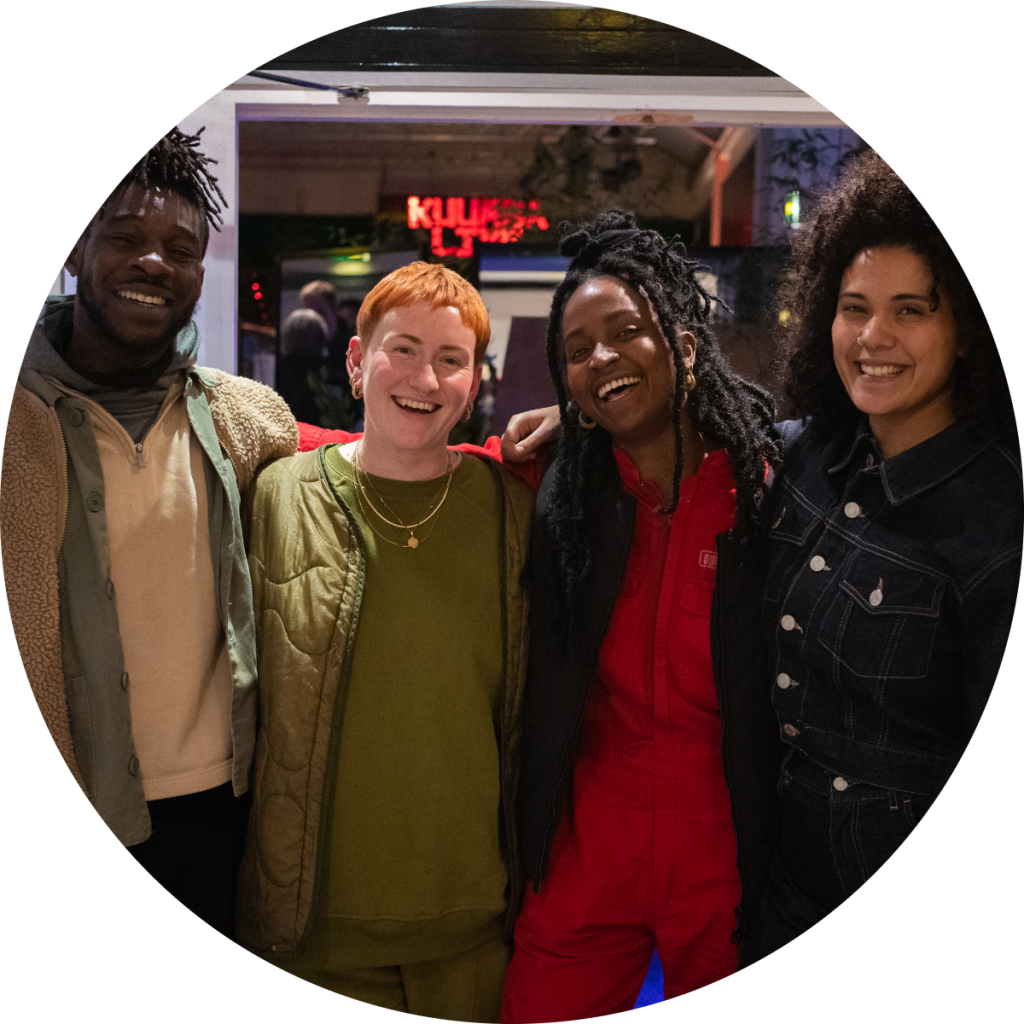What does the future of art x activism x tech look like in the ever-changing world of our climate crisis? What does it mean to be a neurodiverse person engaging with nature? How can creative tech be used to address barriers with accessing local green spaces while also fostering a value for the natural world through interactive play?
‘Where do we go when we ______?’ is the creative development phase of a multi-sensory exhibition experience inspired by nature that both amazes and bewilders; where creative tech, visual art, sound and installations come together to take people through a mindful journey.
Interested in finding out more about the project’s insights? Click here to view a work-in-progress report.
Want to share specific nature-related reflections and musings? Click here to contribute to our Participants Stories, ‘Where do we go when we manifest?’
‘Where do we go when we ______?‘ by Studio Morsi is informed from Emmanuella Morsi’s over 3 years of R&D across various residencies & research projects; most notably, Nature As A Resting Tool project, and is part of Watershed’s experimental R&D programme Grounding Technologies. GT explores how creative tech can be utilised as part of climate action; it is delivered in collaboration with Watershed’s Pervasive Media Studios and University of West of England (UWE) and funded by Bristol and Bath Creative Research & Development.
Studio Morsi was founded as an evolving collaboration between Emma Blake Morsi and friends – using the arts to challenge social and cultural issues, it is multi-disciplinary by nature and radical by choice.
Nigerian-born and Bristol-raised, Emmanuella Morsi (Emma Blake Morsi, Studio Morsi) is an award-winning multi-disciplinary arts producer who has teamed up with local creatives Olamiposi Ayorinde aka Irish Mellow (sound artist and 3D designer) and Ruby Pugh (dramaturg, set designer and maker) to develop the multi-sensory, nature-inspired experience.
WDWGWW aimed to normalise climate engagement with groups facing barriers to nature, with a main objective to develop a better understanding of the kind of creative tech prototypes, considerations, desires and wishes to make a multi-sensory experience that is neurodiverse-friendly, embodies access as a creative tool, and connects marginalised groups to nature.
By meaningfully connecting marginalised communities to nature through decolonised play and immersive art, the team worked closely with local residents and communities to delve deeper into sensory research; specifically, hoping to better understand what multi-sensory elements will be best suited to create a space that’s intersectional and caters to neurodiverse people and those on the spectrum.
With invaluable support from Lutia Swan-Hutton (videographer), Jon Aitken (videographer) and Yelena Eve (production assistant). And special thanks also to our community participants from across Bristol and supporters from further afar, as well as Wake The Tiger, Knowle West Media, Hackspace and the other brilliant Grounding Technology Cohort Project Members.
Key principles are:
- Decolonise green spaces with paid communityworkshopsdismantling the idea of “perfection” when engaging with nature
- Using access as a creative tool (for experimental, radically inclusive spaces; centring co-creation while building new systems and ethics into programming)
- Open-source learnings
- Develop something scalable, adaptable and potentially tourable

REIMAGINING WITH INTERSECTIONAL MARGINALISED COMMUNITIES
Where do you go when you rest? Or when you play? Or when you create? Do you have barriers to engaging with the outdoors? How would you reimagine your local green spaces? And who really owns the green?
Across Sept – Oct 2023, Studio Morsi conducted a national survey, delivered a series of experimental paid workshops across Bristol and a pop-up showcase to further understand what it means to be a marginalised or neurodiverse person engaging with nature, and how can local, historically disadvantaged communities be a part of co-creating an immersive, multi-sensory experience that is inspired by nature and designed to be neurodiverse-friendly.
You can find out more about the project, key information, resources and impact through this work-in-progress report here. The insights in this report have been co-developed with local participants, who, as well as majorit identifying as neurodiverse, also included:
- 51.9% identified as working class or from a low socio-economic background;
- Over 50% identified as a Person of Colour (PoC);
- Approx. 43% identified as having a chronic illness or disabled by society;
- Approx 35% identified as LGBTQIA+;
- Covered postcodes across Bristol: BS1, BS2, BS3, BS4, BS5, BS5, BS5, BS13, BS14, BS15, BS16, BS20, BS32, BS34.
If interested in finding out more about the project, including how to engage further or support, please contact us on wheredowego@emmablakemorsi.co.uk. And if you need help contributing to any of the forms or need to request a paper version for yourself or on someone else’s behalf, please get in contact.

Studio Morsi Team at WDWGWW Pop-Up Showcase in Kuumba, St Pauls | Photography by Jade Ayino
